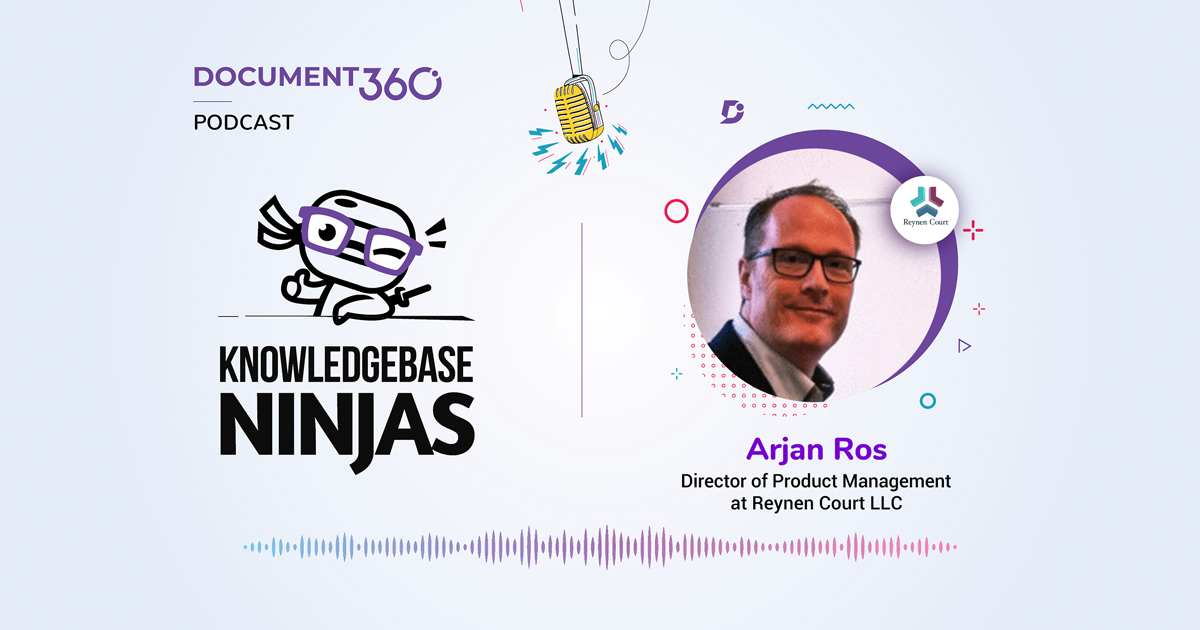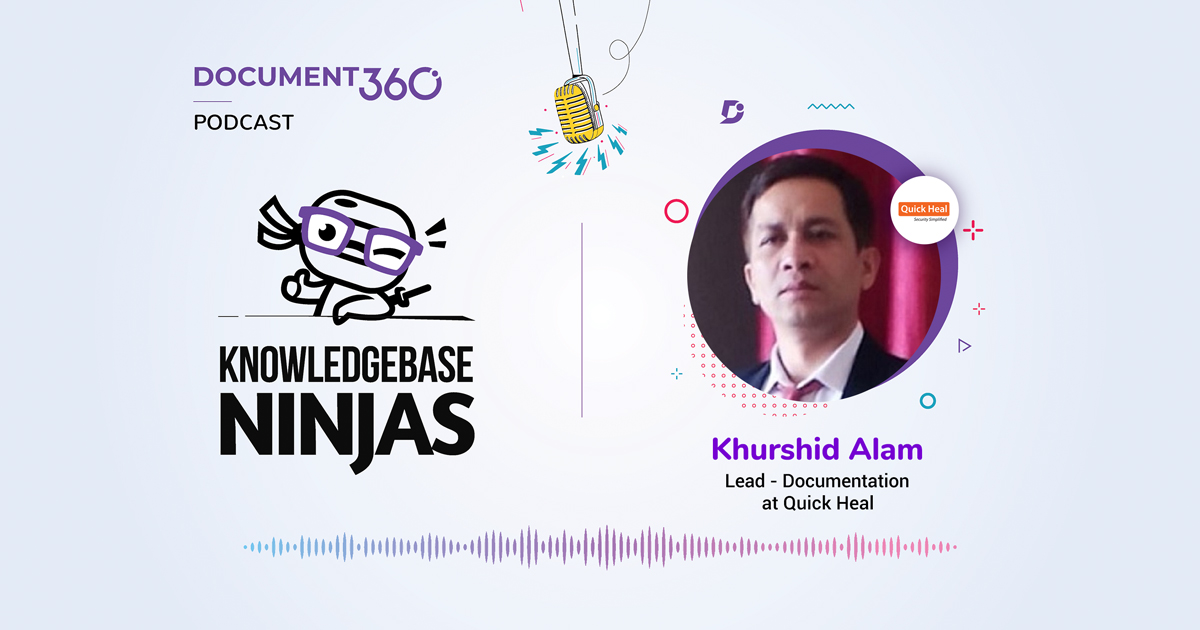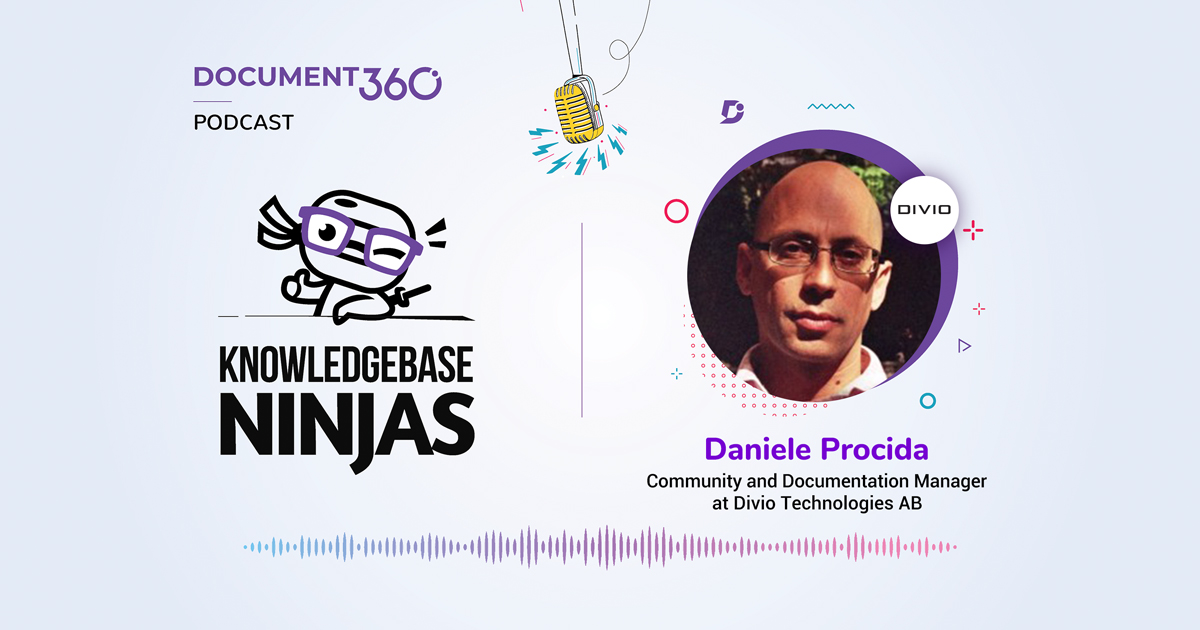Rick Teplitz, Documentation and Project Manager at Imperva joins us in this episode of Knowledgebase Ninja and shares what it takes to be a great technical writer and how to create quality documentation. Check out all the other episodes of Knowledgebase Ninjas.
Connect with Rick Teplitz & Imperva’s Knowledgebase here:
Key Takeaways:
How did Rick get into documentation?
25 years ago, unsure what path to take, a friend of Rick’s mentioned that there was a lot of demand for technical writers in software companies. Following that, Rick started off by taking various courses to improve his technical knowledge, one was a certified course in ethical hacking!
His first job in the field was as a technical writer, though it was more of an editorial job, Rick says.
Since then, he has been working with Imperva for almost 13 years. Starting off as a staff technical writer, he then switched to become a knowledge engineer before settling back into his role in documentation and project management – where he’s been working for about 6 years now.
Rick’s documentation process:
The simple workload of a single feature or product is a fairly streamlined process that starts when the product/feature comes in. The task is often divided amongst writers with particular specialties, who then make the necessary calls and appointments with the developers, SMEs (Subject Matter Experts), architects and others to find out as much information as they can. With that, they settle down to begin the first draft, which is then sent out for a review.
Important factors in documentation:
Rick says that there is one factor that matters above all – EQ (Emotional Quotient). The documentation is incomplete if you can’t structure strong relationships with the organizations you work for, you need to show that you are here to cooperate, that “we are there to collaborate”. You should certainly have a strong grasp of technical and technological based information, but understanding how to form and build trust is essential in any business relationship, documentation included.
Who has inspired Rick in technical writing?
- Paula R. Stern, Senior Technical Writer – President at Tekom-Israel President
One piece of advice Rick would give his younger self about documentation:
The advice that one of Rick’s mentors gave him that he ended up utilizing is find a specialty. It’s also important to branch out and learn as much as you can. Learning is imperative, and is something you shouldn’t stop at any point in your life. Companies these days are looking for people with multiple skills and in-depth understanding in multiple fields.
So don’t limit yourself to what you already know – explore and learn and grow, constantly.
Subscribe To Knowledgebase Ninjas:
Quote:
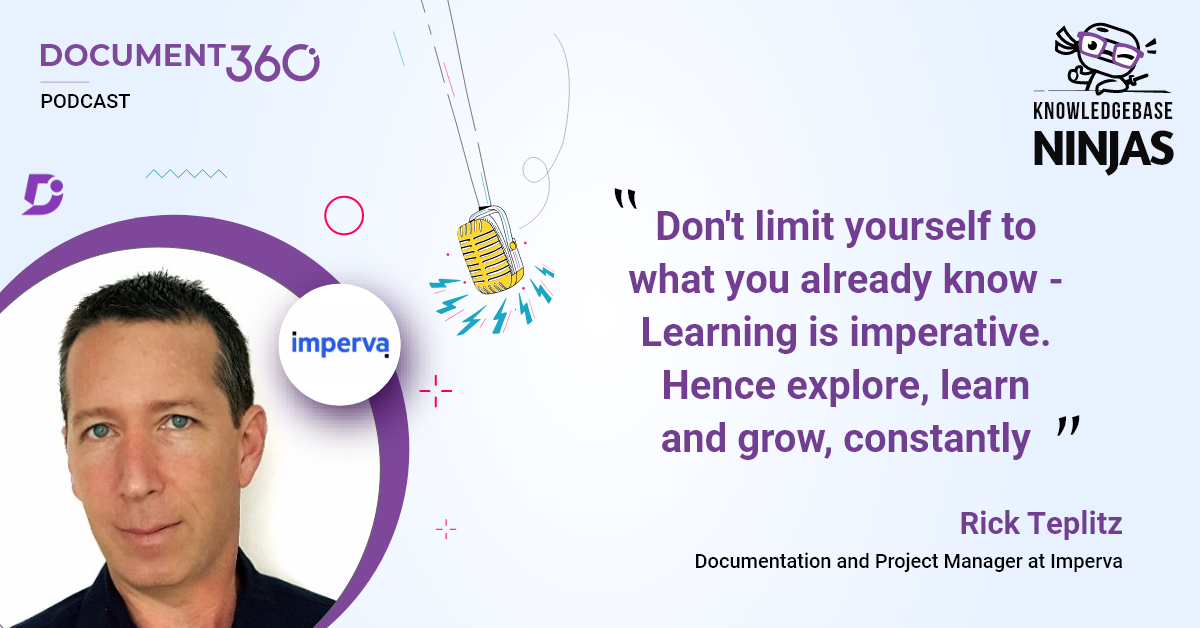

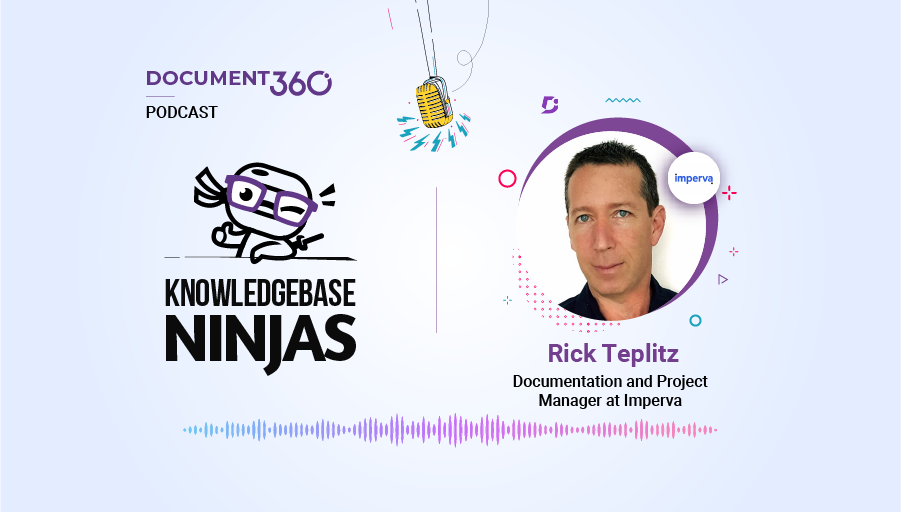
 –
– 